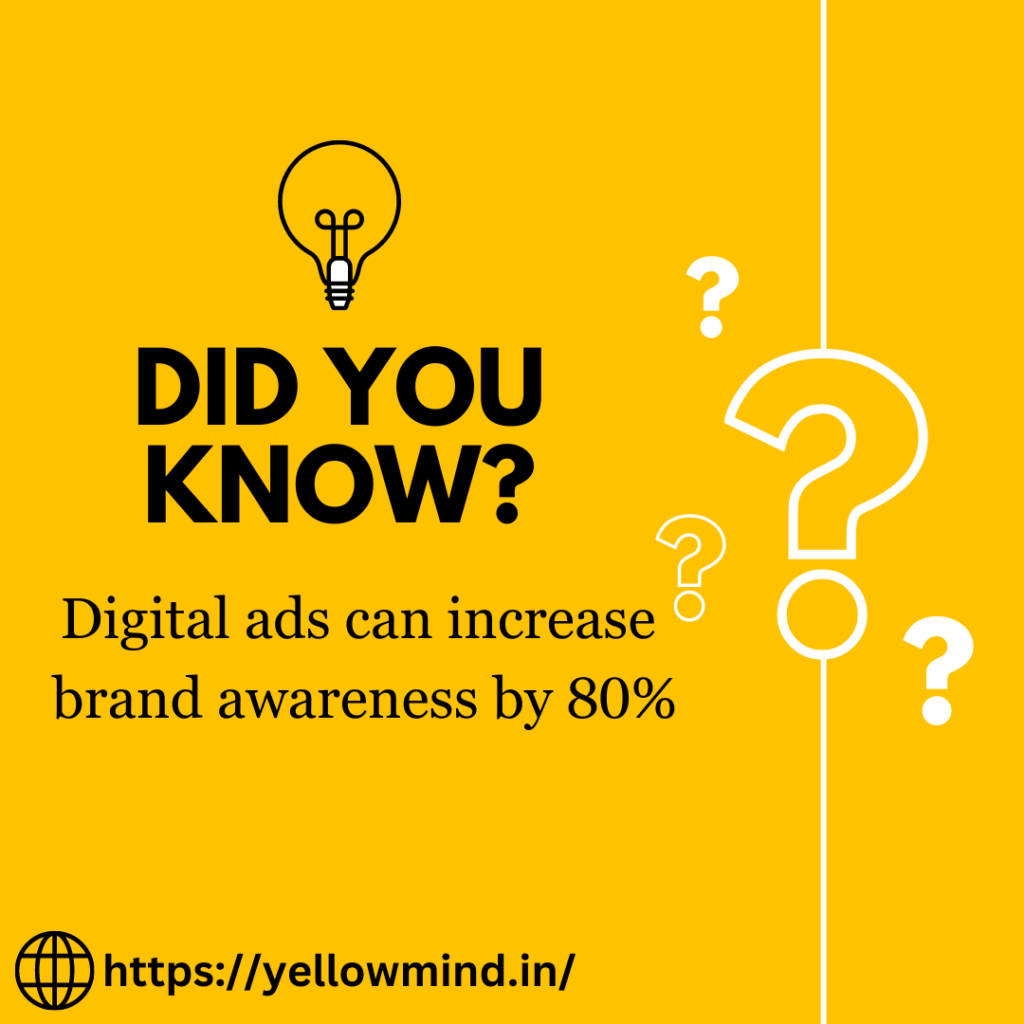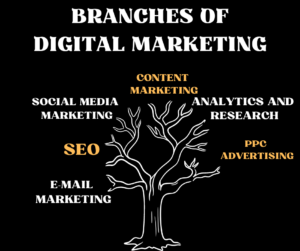
In today’s digital age, where connectivity and communication have transcended geographical boundaries, social media marketing has emerged as a pivotal force in shaping the business landscape. The convergence of technology and social interaction has created a platform that not only connects people but also serves as a powerful tool for businesses to engage with their audiences. This blog digs into the evolution, strategies, benefits, challenges, and prospects of social media marketing.
Evolution of Social Media Marketing
The roots of social media marketing can be traced back to the early 2000s, with platforms like Friendster and MySpace paving the way for online networking. However, it was the launch of Facebook in 2004 that truly revolutionized the concept of social media. As the user base grew, businesses saw an opportunity to connect with a large audience and engage in direct conversations.
Over the years, various other platforms emerged, including Twitter, Instagram, LinkedIn, Snapchat, and TikTok, among others. Each platform presented a unique way for users to connect, share content, and engage with brands. As these platforms gained support, businesses realized the potential of reaching their target audiences in a more personalized and direct manner, giving birth to the field of social media marketing.
Strategies in Social Media Marketing
Social media marketing encompasses a wide range of strategies aimed at achieving diverse objectives, from brand awareness and lead generation to customer engagement and sales conversion.
Some common strategies include:
Content Creation: Producing engaging and relevant content is at the core of social media marketing. This includes posts, images, videos, infographics, and articles that resonate with the target audience.
Audience Segmentation: Social media platforms allow businesses to segment their audience based on demographics, interests, and behaviors. This enables targeted content delivery.
Influencer Collaboration: Partnering with influencers who have a significant following can help extend the reach of a brand’s message and lend credibility.
Paid Advertising: Social media platforms offer sophisticated advertising options that allow businesses to reach specific demographics and track the effectiveness of their campaigns.
Engagement and Community Building: Interacting with followers, responding to comments, and fostering a sense of community around the brand are essential for maintaining an active online presence.
Analytics and Insights: Utilizing the analytics tools provided by social media platforms, businesses can measure the performance of their campaigns and adjust their strategies accordingly.
Benefits of Social Media Marketing

The adoption of social media marketing has led to a plethora of benefits for businesses, including:
Global Reach: Social media transcends geographical boundaries, enabling businesses to reach a global audience without the need for an extensive physical presence.
Cost-Effectiveness: Compared to traditional advertising, social media marketing often requires lower financial investment, making it accessible to businesses of all sizes.
Targeted Marketing: The ability to target specific demographics ensures that marketing efforts are directed at those most likely to be interested in the product or service.
Real-time Engagement: Social media allows for instantaneous interactions between brands and consumers, fostering a sense of transparency and immediacy.
Brand Building: A consistent and engaging social media presence contributes to brand visibility and helps shape brand identity.
Data and Insights: Social media platforms provide valuable data and insights about audience preferences, allowing businesses to refine their strategies.
https://www.instagram.com/yelloww.mindd/
Challenges in Social Media Marketing
While social media marketing offers numerous advantages, it also presents certain challenges:
Algorithm Changes: Social media algorithms are constantly evolving, impacting the visibility of organic content. Businesses need to adapt to these changes to maintain their reach.
Competition: With the proliferation of businesses on social media, standing out and capturing users’ attention has become increasingly challenging.
Negative Feedback: Negative comments or reviews can spread rapidly on social media, requiring prompt and thoughtful responses.
ROI Measurement: Measuring the return on investment for social media campaigns can be complex, as it’s often challenging to directly attribute sales to social media efforts.
Privacy Concerns: Users are becoming more conscious of their privacy, leading to stricter regulations and limitations on data usage for marketing purposes.
The Future of Social Media Marketing
The future of social media marketing promises even more innovation and evolution:
Video Dominance: Video content is projected to dominate social media platforms, making it crucial for businesses to incorporate video marketing strategies.
Augmented Reality (AR) and Virtual Reality (VR): These technologies are likely to play a significant role in enhancing user experiences and product presentations.
Ephemeral Content: The popularity of stories on platforms like Instagram and Snapchat indicates a shift towards more temporary, in-the-moment content.
AI and Chatbots: Artificial intelligence-powered chatbots will likely become more sophisticated, offering personalized customer interactions and assistance.
E-Commerce Integration: Social media platforms are increasingly integrating e-commerce features, allowing users to shop directly from the platforms.
Social media marketing has come a long way from its early days as a mere networking tool. It has transformed into a dynamic and integral aspect of modern business strategies. With the ability to connect businesses and consumers in unprecedented ways, social media marketing has reshaped advertising, communication, and customer engagement. While challenges persist, the continued evolution of technology and the ever-changing social landscape promise a future where social media marketing remains a central force in business success. As businesses adapt to new trends, technologies, and consumer behaviors, social media marketing will undoubtedly continue to be a driving force in the digital era.
The Evolving Landscape of Social Media Marketing: Strategies for Success
In the modern era of digital connectivity, social media has transformed from being a mere platform for personal interactions into a powerful tool for businesses to reach and engage with their target audiences. Social media marketing has become an integral component of the overall marketing strategy for companies across industries. With its ever-evolving dynamics and trends, understanding the nuances of social media marketing is crucial for businesses aiming to thrive in the digital age.
The Power of Social Media Marketing: A Paradigm Shift
The rise of social media platforms has redefined the way businesses interact with consumers. Traditional advertising methods have given way to more personalized and interactive approaches. Social media offers a direct line of communication between brands and their audience, fostering a sense of community and engagement. The ability to gather real-time feedback and insights enables businesses to refine their offerings and strategies.
Choosing the Right Platforms: Quality over Quantity
The multitude of social media platforms available can be overwhelming for marketers. Instead of trying to maintain a presence on every platform, businesses should focus on identifying where their target audience spends their time. A B2B company might find more success on LinkedIn, while a visually-oriented brand could flourish on Instagram. Understanding the demographics, features, and trends of each platform is essential to tailoring content effectively.
Content is King: Crafting Compelling Social Media Content
No social media marketing strategy can succeed without high-quality content. Visual appeal is paramount, as platforms like Instagram, Pinterest, and TikTok rely heavily on imagery and videos. On the other hand, platforms like Twitter and LinkedIn demand concise and impactful text-based content. Businesses should prioritize storytelling, authenticity, and relevance in their content creation efforts.
The Role of Data Analytics: Informed Decision-Making
Data analytics tools provide invaluable insights into the performance of social media content. Metrics such as engagement rate, click-through rate, and conversion rate offer a comprehensive view of what works and what doesn’t. These metrics empower businesses to make data-driven decisions, refine their strategies, and allocate resources effectively.
Influencer Collaborations: Leveraging Authority
Influencer marketing has emerged as a potent strategy in the realm of social media marketing. Partnering with individuals who have a significant following and credibility within a niche can help businesses tap into a wider audience. However, the authenticity of the partnership is crucial. Consumers can discern genuine collaborations from forced promotions, emphasizing the need for aligned values between brands and influencers.
Paid Advertising on Social Media: Reaching the Right Eyes
Most social media platforms offer paid advertising options that allow businesses to target specific demographics. The granularity of targeting is unparalleled, enabling brands to reach users based on demographics, interests, behaviors, and even online interactions. Crafting compelling ad content and optimizing targeting parameters are pivotal for a successful paid social media campaign.
Community Building and Engagement: Nurturing Brand Advocates
Beyond posting content, active engagement with the audience is vital for building a loyal community. Responding promptly to comments, messages, and mentions humanizes the brand and fosters a sense of connection. User-generated content campaigns encourage customers to create content related to the brand, further strengthening the bond between the business and its consumers.
The Challenges and Ethical Considerations
While social media marketing offers tremendous opportunities, it also presents challenges. The fast-paced nature of social media demands constant attention, and negative feedback can spread rapidly. Maintaining a consistent brand image across platforms requires careful planning. Moreover, ethical considerations, such as data privacy and the spread of misinformation, necessitate responsible practices.
Adapting to Trends: The Future of Social Media Marketing
The landscape of social media marketing is ever-changing, with new platforms, features, and trends emerging regularly. Staying updated with these changes is essential for businesses to remain relevant. For instance, the rise of short-form video content on platforms like TikTok and Reels has altered content strategies. Embracing augmented reality (AR) and virtual reality (VR) technologies also holds potential for immersive brand experiences.
Measuring ROI: Linking Efforts to Business Goals
Measuring the return on investment (ROI) of social media marketing efforts can be challenging, but it is necessary to evaluate the effectiveness of the strategy. Linking social media metrics to broader business goals, such as increased website traffic, lead generation, or sales, provides a clearer picture of the impact of social media on the bottom line.
Conclusion
Social media marketing is a dynamic and influential tool that has reshaped the way businesses connect with their audience. By understanding the intricacies of different platforms, creating captivating content, leveraging data insights, and fostering genuine engagement, businesses can harness the power of social media to achieve their marketing objectives. The future of social media marketing promises continued evolution, requiring marketers to stay agile, adaptable, and innovative in their approach.
Social media marketing has become an integral part of modern business strategies, offering a dynamic and impactful way to connect with audiences, build brand awareness, and drive engagement. There is a diverse array of social media platforms, each with its unique features and user demographics, catering to different marketing objectives. Here, we will explore some prominent types of social media marketing platforms.
Social Networking Sites: Platforms like Facebook, Instagram, and LinkedIn fall under this category. They enable businesses to create profiles, share content, interact with users, and build communities. Facebook offers a wide audience reach and diverse ad formats, making it suitable for various industries. Instagram’s focus on visuals is perfect for businesses with visually appealing products or services. LinkedIn is more geared towards B2B marketing, providing a platform for professional networking and industry-related content sharing.
Microblogging Platforms: Microblogging platforms like Twitter and Tumblr emphasize concise content sharing. Twitter’s short-form posts, or tweets, are ideal for quick updates, engaging with customers, and participating in trending conversations. Tumblr combines short posts with multimedia content, appealing to creative industries and younger demographics.
Visual Discovery Platforms: Pinterest and Snapchat fall into this category. Pinterest revolves around visual discovery and inspiration, making it suitable for lifestyle, fashion, and DIY brands. Snapchat’s ephemeral nature suits businesses targeting younger audiences through temporary, engaging content.
Video Sharing Platforms: YouTube and TikTok are prominent video-sharing platforms. YouTube offers a space for longer-form content, tutorials, product demonstrations, and brand storytelling. TikTok’s short, catchy videos are popular among younger users and provide an opportunity for businesses to create viral challenges and entertaining content.
Professional Networking Platforms: Platforms like LinkedIn and, to some extent, Twitter, cater to B2B interactions. They allow businesses to establish authority in their industry, share thought leadership content and connect with other professionals.
Location-Based Platforms: Location-based platforms such as Foursquare and Yelp are vital for businesses with physical locations. They allow customers to leave reviews, check-in, and engage with the business on a local level.
Niche Communities and Forums: Platforms like Reddit and Quora provide spaces for discussions and sharing expertise on specific topics. Engaging in these communities can establish a brand’s authority and provide targeted exposure.
Live Streaming Platforms: Live streaming is gaining popularity on platforms like Facebook Live, Instagram Live, and Twitch. It allows real-time interaction with audiences, providing opportunities for Q&A sessions, product launches, and behind-the-scenes glimpses.
Messaging Apps: Messaging apps like WhatsApp, Facebook Messenger, and WeChat are used for direct communication with customers. Businesses can offer personalized support, send promotions, and even enable transactions through these platforms.
Podcasting Platforms: While not traditional social media platforms, podcasting platforms like Apple Podcasts and Spotify offer opportunities for businesses to create audio content and connect with audiences through a different medium.
In conclusion, the diverse landscape of social media platforms provides businesses with a range of options to tailor their marketing strategies to their target audiences. Choosing the right platforms, based on the brand’s objectives, target demographics, and content type, is crucial for successful social media marketing. A well-executed social media strategy can lead to increased brand visibility, engagement, and ultimately, conversions.





Pingback: GOOGLE ADS - THE FUTURE OF ADVERTISING